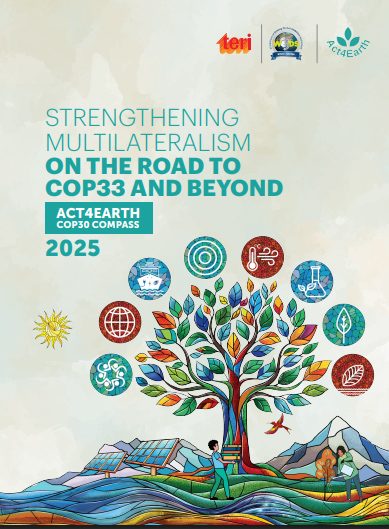Strengthening Multilateralism on the Road to COP33 and Beyond
The world remains off-track to meet the goals of the Paris Agreement, with global temperature rise projected to exceed 2.5°C by the end of the century. The existing structure of global climate governance is widely regarded inadequate to deliver the pace and scale of transformation that science demands.
This paper outlines a reform agenda aimed at restoring urgency, credibility, and trust in the Conference of the Parties (COP) process. Drawing on institutionalist theories, it presents a framework that integrates design dimensions with the core functions of international organizations. The analytical framework applies five key variables—scope, membership, decision-making, functions, and form— to assess the institutional architecture of the United Nations Framework Convention on Climate Change (UNFCCC).
Through institutional analysis and expert consultations, the study identifies structural gaps and proposes targeted reforms to strengthen the COP process. The second Global Stocktake scheduled for 2028 alongside COP33, could mark a defining moment if the parties embrace reform as a pathway to renewed ambition and shared responsibility. Guided by the ethos of Vasudhaiva Kutumbakam—the ancient Indian ideal which translates to ‘the world is one family’—the UNFCCC can evolve into a more inclusive, equitable, and trusted guardian of collective climate action, fostering unity and stewardship in the global response to climate change.

